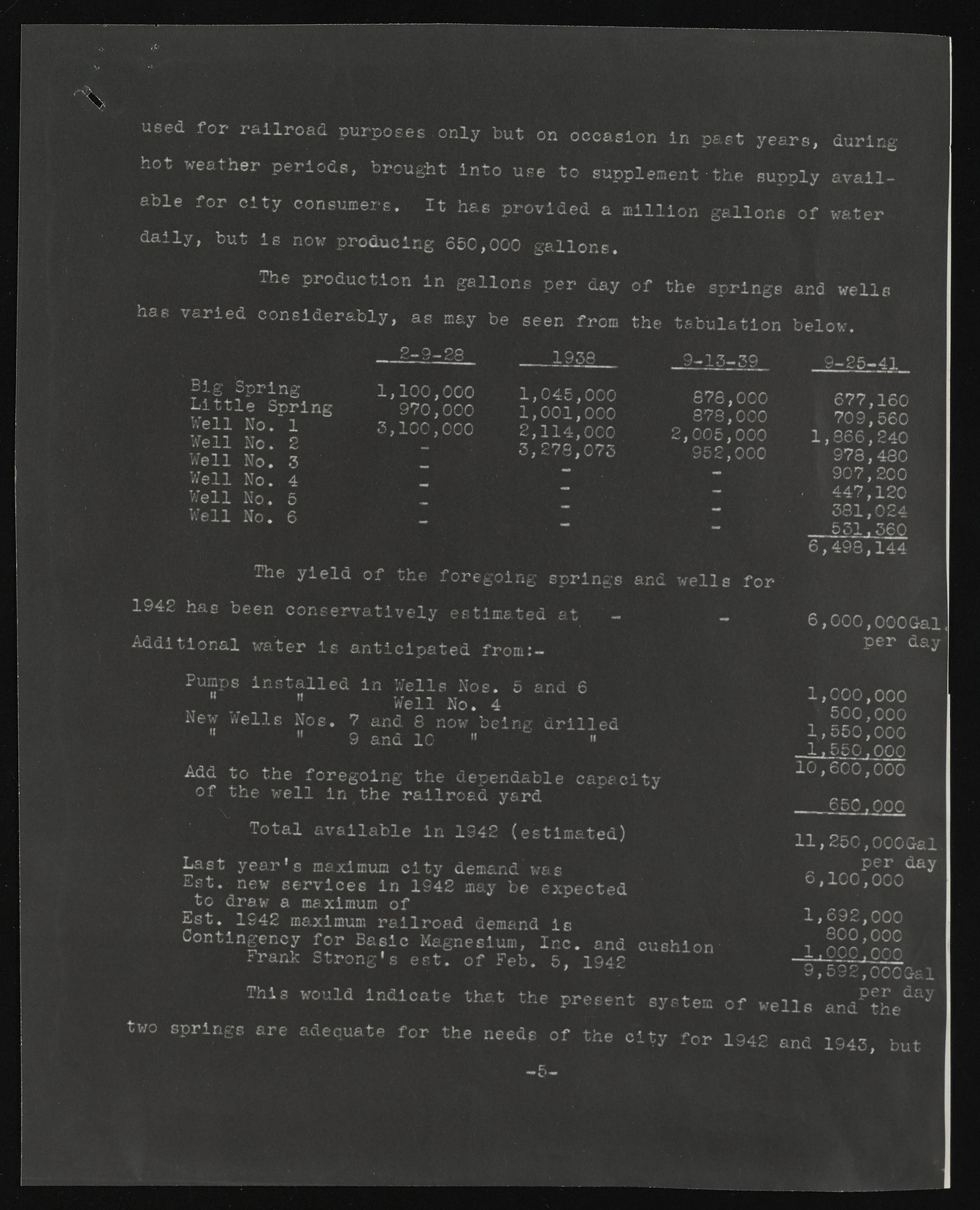Copyright & Fair-use Agreement
UNLV Special Collections provides copies of materials to facilitate private study, scholarship, or research. Material not in the public domain may be used according to fair use of copyrighted materials as defined by copyright law. Please cite us.
Please note that UNLV may not own the copyright to these materials and cannot provide permission to publish or distribute materials when UNLV is not the copyright holder. The user is solely responsible for determining the copyright status of materials and obtaining permission to use material from the copyright holder and for determining whether any permissions relating to any other rights are necessary for the intended use, and for obtaining all required permissions beyond that allowed by fair use.
Read more about our reproduction and use policy.
I agree.Information
Digital ID
Permalink
Details
More Info
Rights
Digital Provenance
Publisher
Transcription
used for railroad purposes only but on occasion in past years, during hot weather periods, brought into use to supplement the supply available for city consumers. It has provided a million gallons of water daily, but Is now producing 650,000 gallons. The production in gallons per day of the springs and wells has varied considerably, as may be seen from the tabulation below. Big Spring Little Spring Well No. 1 Well No. 2 Well No. 3 Well N o . 4 Well No. 5 Well No. 6 2-9-2Q 1,100,000 970,000 3,100,000 1938 1.045.000 1.001.000 2,114,000 3,278,073 9-13-59 878.000 878.000 2,005,000 952.000 The yield of the foregoing springs and wells for 1942 hae been conservatively estimated at Additional water is anticipated from:- Pumps Installed in Wells Nos. 5 and 6 " Well No. 4 New Wells Nos. 7 and 8 now being drilled " 9 and 10 " » Add to the foregoing the dependable capacity of the well in the railroad yard Total available in 1942 (estimated) Last y e a r ’s maximum city demand was Est. new services in 1942 may be expected to draw a maximum of ?kst. 1942 maximum railroad demand is Contingency for Basic Magnesium, Inc. and cushion Frank Strong's est. of Feb. 5, 1942 9-25-41 677,160 709,560 1,866,240 978,480 907,200 447,120 381,024 551.360 6,498,144 6 .000. 000Gal per day 1 ,C O O ,000 500,000 1., 550,000 - 1 . 5 5 0 . OOP 10,600,000 650.000 1 1 , 250,000Gal per day 6 ,100,000 1,692,000 800,000 ? 1 ,000.000 9,592,0C0Gal per da; .s and the two springs are adequate for the needs of the city for 1942 and 1943, but This would Indicate that the present system of wells a n d ^ h e ^ -5-

